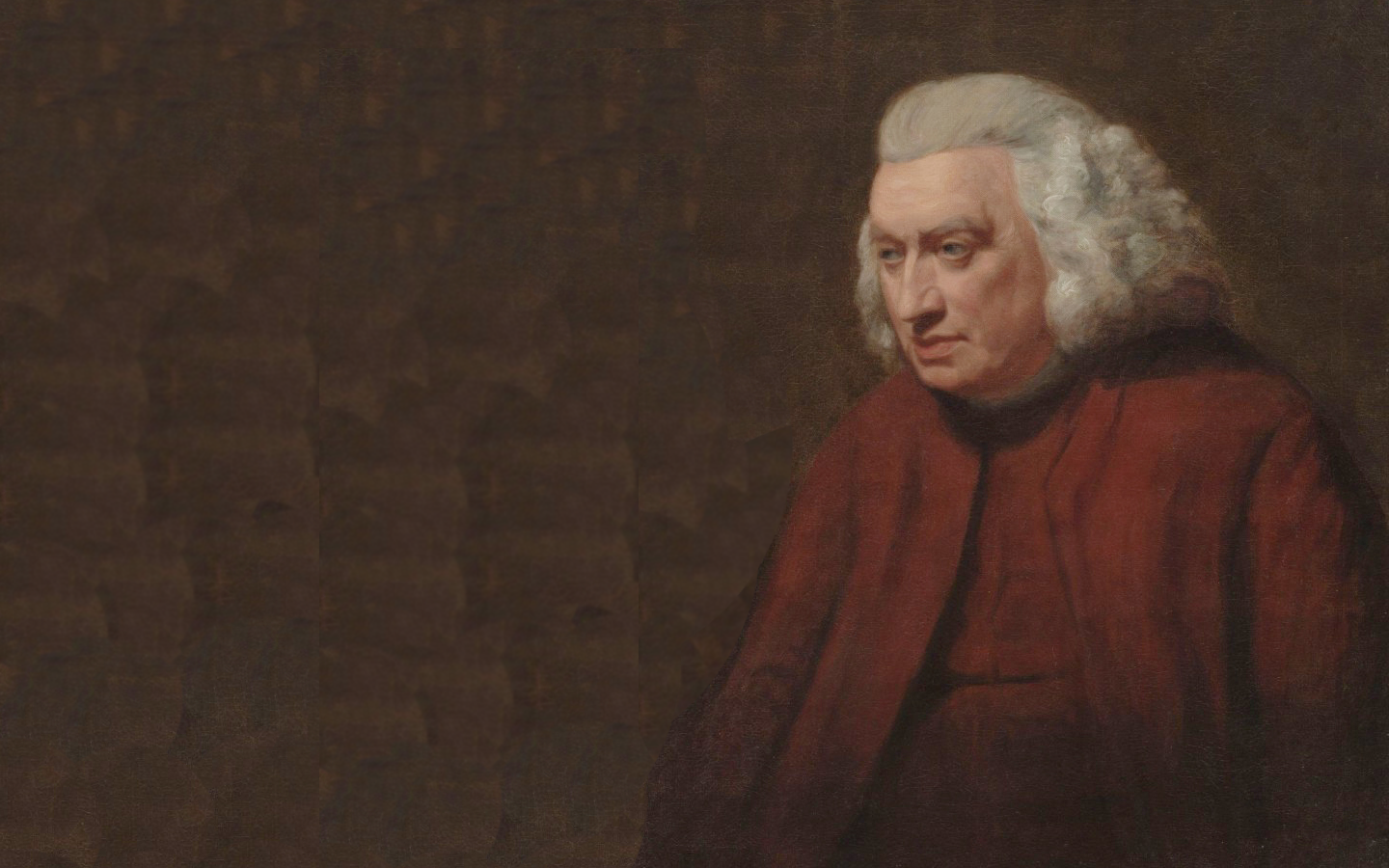The Yale Edition was founded in 1955 to replace the so-called Oxford Edition of 1825 and make accurate texts of Johnson’s complete works widely available. Originally, there were to be nine volumes, and the project was to take two years. Volume One—Diaries, Prayers, and Annals—appeared in 1958. Over time, the plan of the Edition grew, and the last of the twenty-three volumes was not published until 2019. This is the most comprehensive edition of Johnson’s works ever published.

“Knowledge is of two kinds. We know a subject ourselves, or we know where we can find information upon it.”
— Samuel Johnson (Boswell's Life of Johnson)
Search & Browse
By Genre
The Yale Digital Johnson distinguishes over forty genres in Johnson’s collected works. Johnson was keenly aware of genre, and he performed in almost of all of them, from epitaph to advertisement, from prayer to parody, and from satire to tragedy.
Debates
Included in the Yale Edition is the three-volume collection of the Parliamentary Debates, which Johnson composed for the Gentleman's Magazine in the early 1740s. The brilliant prose of these works is unsurpassed by the works of any of the politicians whose speeches Johnson invented.
Moral Essays
Many readers believe Johnson’s genius is most powerfully distilled in the moral and ethical essays he composed in The Rambler, The Idler, and the other periodicals to which he contributed.
Poetry
Johnson first made his literary reputation as the author of London (1738), and his Vanity of Human Wishes has been called the greatest verse satire in any language, but he also wrote scores of less famous poems and was remarkably adept at impromptu composition.
Literary Criticism
Johnson may be best known as a critic of literature and language. His Preface to the Dictionary (1755) and his Preface to Shakespeare (1765) are two of his greatest works, but he wrote a great many other essays in these genres.
Biography
Johnson’s favorite kind of writing was biographical. He started writing biographies at the beginning of his career and continued until its end, composing nearly seventy by the time he finished his Lives of the Poets in 1781.
Religious Writings
Twenty-eight sermons have been attributed to Johnson, most of them written for others and only published after his death. He also composed numerous prayers, and religion is frequently a theme in his essays and in other genres at which he excelled.
Chronologically
None of the collected editions of Johnson’s works, including the Yale Edition, arranges Johnson’s writings in chronological order. The Digital Yale Johnson gives readers the option of doing so or of choosing to delve into any particular period of Johnson’s works. Every one of Johnson’s works in this edition is tagged with a date of publication and a likely date of composition. The time line below sketches the most well-known of Johnson's works in several periods of his life.
1709-1730
School exercises and early poetry
1730-1738
Early journalism, Irene (draft), A Voyage to Abyssinia
1738-1745
London, Early biographies, Parliamentary debates
1745-1755
Plan of the Dictionary, The Vanity of Human Wishes, The Rambler
1755-1765
A Dictionary of the English Language, The Idler, The History of Rasselas, The Plays of William Shakespeare
1765-1776
A Journey to the Western Islands, Taxation no Tyranny
1776-1784
Lives of the Poets
About the Project
The Digital Edition of the Yale Edition of the Works of Samuel Johnson
Launched in 2016, before the print edition was complete, the Digital Yale Edition of the Works of Samuel Johnson now comprises all twenty-three volumes of the standard edition of Johnson’s works. It also includes many corrections of errors in the print edition and many updated cross references in the textual notes and commentary. A list of “additional resources” points the reader to Johnsonian work not contained in this edition as well as other important editions of his works. The Yale Digital Edition has the same goal as the print edition—to make the works of Samuel Johnson available in reliably edited texts—but aims to achieve it more completely by making Johnson’s works available, searchable, and free to all.
More about the project

